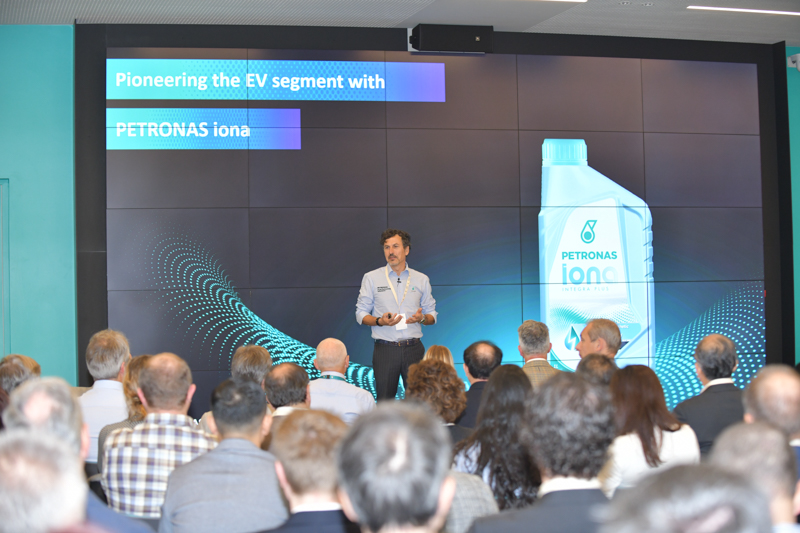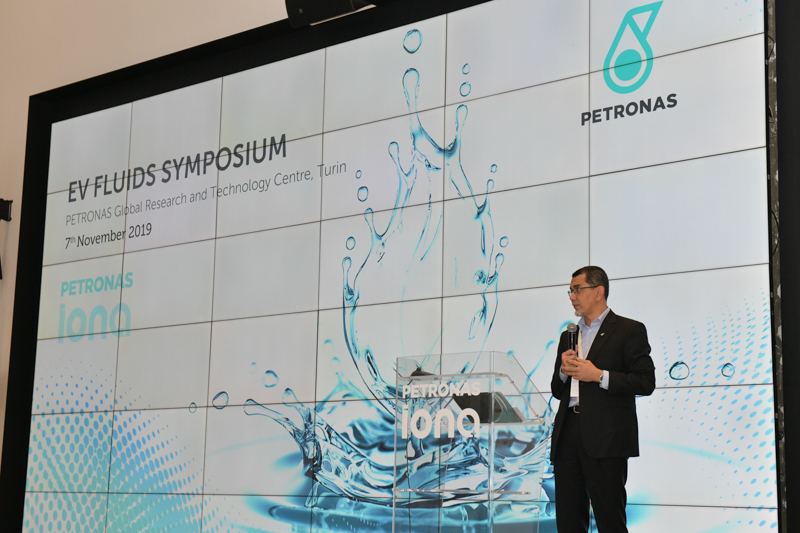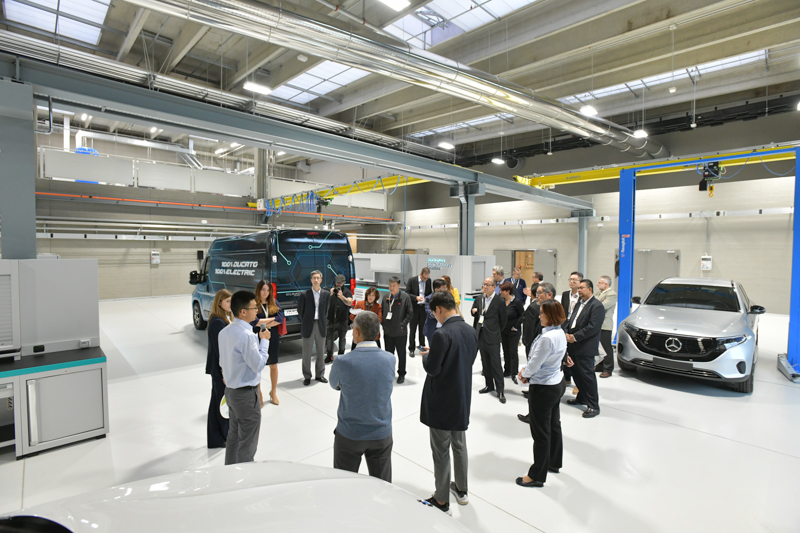-
PETRONAS Lubricants International (PLI) organised the inaugural Electric Vehicle Fluids Symposium in Turin, Italy recently.
-
The symposium discussed several issues including the sustainability of e-mobility and climate “challenge.”
-
Electric vehicles (including motorcycles) do require lubrication in several crucial areas.
PETRONAS Lubricants International (PLI) organised the inaugural Electric Vehicle Fluids Symposium in Turin, Italy recently.
Perhaps many are unaware, but electric vehicle motors and batteries do require lubrication, especially since the motor can speed up to 15,000 RPM. Hence, lubrication is crucial for cooling the motor, as well as in several areas such as the gear reducer (electric vehicle’s transmission).
These fluids have specific properties compared to the usual engine oil since they are subjected to high voltages and temperatures in places such as the coils. The fluid must protect them from corrosion and prevent short circuits.
Held at their Global Research and Technology (R&T) Centre, the one-day event saw the attendance of more than 120 participants consisting of industry-leading experts from across the world. The participants discussed and featured EV innovations to support a cleaner, energy-efficient and more sustainable e-mobility future. It was also a platform for these experts to share future EV technology trends, respective market relevance and the role of fluids in the evolution of e-transmission and battery technologies.
Additionally, the event aimed to encourage discussions on managing the climate challenge through EV technological developments and operational discipline.

“At PLI, we’ve pledged to double our investments and dedicate 75 per cent of our R&T expenditure in projects that contribute to reducing CO2 emissions. PLI’s venture into the EV market that was announced earlier this year through PETRONAS iona range of e-fluids reinforces our commitment to the development and deployment of fluid technology. The EV Fluids Symposium is our next initiative to work together, deliberate possibilities and set a shared agenda towards a cleaner future,” said PLI Managing Director and Group Chief Executive Officer, Giuseppe D’Arrigo.
During the symposium, PLI also shared the findings of the industry’s first global study in EV Technology and Fluids focusing on Electric Drive Units and Batteries. The study, carried out in collaboration with FEV Consulting, concluded that innovation is crucial in advancing EV performance and durability, and continued improvement is needed to promote increased adoption rates of electric transportation by consumers.
Commenting on the state of the industry, Electric Vehicle Outlook Founder & Event Host, Roger Atkins said, “Change is a challenge, and with the rapid integration of electric vehicles into the global mobility eco-system, that challenge is being met with unprecedented and active collaboration between OEMs, academia, and the world’s smartest engineering teams. I am encouraged to see the focus and ambition here at the EV Fluids Symposium. The twin imperatives of climate change and air quality can only be tackled by truly maximising the efficiency of our planet’s mobility machines, amongst others.”

At the PETRONAS Global R&T Centre, attendees enjoyed the opportunity to tour the productdevelopment laboratory and mechanical testing facilities to understand the experimental work that goes into developing PETRONAS e-fluids.
Since the introduction of PETRONAS Carbon Commitments in 2012, the company has decreased its monitored carbon footprint by 13% from 2017, which is a cumulative 12 million tonnes of greenhouse gas emissions reduction. PETRONAS is also collaborating with Daimler Automotive in green projects towards low-carbon fuel and vehicle emissions control.
More recently, PETRONAS’ efforts towards a sustainable future included the establishment of PETRONAS Carbon Commitments Guidelines and a New Energy unit to enhance capabilities in the renewables sphere.
Source and photographs: PETRONAS Lubricants International (PLI)

















